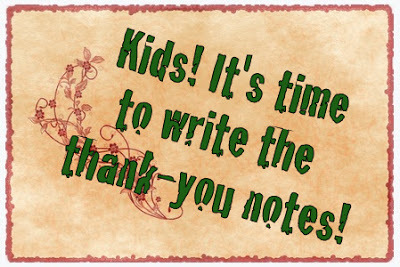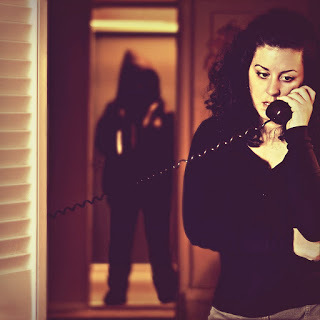Maria Keffler's Blog, page 4
May 22, 2018
Pay For Your Own Darn Cell Phone

I have slacked off and failed to charge our son for his cell phone use for the past five months. Why? Because I forgot how much each megabyte of data costs, and Consumer Cellular* charges by the gigabyte, and that meant I needed to do math and I just haven’t felt like it.Hubs would be displeased.But I sat down this morning, pulled up the last five invoices and ran the numbers. The boy owes us $79.66 for January-May.How did I arrive at that figure? Let me start from the beginning.The boy has been asking for a cell phone since he exited the womb. We held firm to our refusal until he turned 14 in September and entered high school. And we have no regrets. Our girls, 10 and 12, do not own cell phones. The elder mistakenly thought that “fourteen” and “freshman” were the magic words that unlocked cell phone ownership. I laughed in her face and replied, “You and your brother attend the same school, and will until he leaves for college. Therefore I have no need for you to carry a phone, because I can reach either of you via him.” Bwah-ha-ha!But yes, she’ll likely get hers when she enters high school. That’s how kids and teachers and the entire developed world communicate. We get that.However.A cell phone is a never-ending, monthly-recurring charge. Once you start it, you’re never going to stop. So when do you pass the baton to the kid and make him/her responsible for the bill?How about right away?We’ve told our kids they can have a cell phone when they can pay for it, independent of the salary we give them to cover their basic needs. The boy has had a job for the last two years. He walks our elderly neighbor’s dogs every weekday morning and twice on Saturdays. He pulls in $50-60 a week. That’s better than I do with my books. (Cough, cough, click the link, support a starving artist?)The next consideration has to do with minutes and data sharing. Hubs cogently pointed out that while the extra line on my account only costs $10, the kid (and before long kid s ) will be sucking up my minutes and data like a toddler sucking at a half pint of chocolate milk. We needed to incentivize seeking out Wi-Fi and dis-incentivize streaming Netflix, YouTube, and Pandora via cell tower while riding in the back of the bus.Hence the math I had to do.My monthly plan through Consumer Cellular* gives me 250 minutes of phone time for $15 and 5 GB of data for $30. So, the boy pays $0.06 for every minute he talks on the phone (to anyone other than me), and $0.006 for every MB of data he eats.He watches those numbers carefully, friends. He occasionally asks me to pull up the online statement to see where he’s at for the month.It works great. And he ends up paying around $15-18 a month for the privilege of having a cell phone. When my daughters get their lines we’ll probably have to up the minutes and data plan, but they’ll be covering that extra charge.Just wanted to share this little family plan with you, in case you’re pondering how to handle cell phones and kids. This is how we do it. It’s certainly not the only way, but it works for us. And we think it’s teaching our young about responsibility and finances.If nothing else it shuts down the “I want a cell phone!” whining.“You got a job yet? No? Then there’s nothing I can do for you.”Boom!
*Consumer Cellular did not pay me anything to reference them in this blog. I just really like them and think everyone should consider switching. They’re awesome. (P.S., Consumer Cellular, if you liked this post, I’m open to talking about remuneration of some sort…)
Published on May 22, 2018 10:28
May 18, 2018
Losing English

I love the English language. It’s my first language. I teach it. I write in it. Finding just the perfect word gives me a little charge of visceral glee that non-lexophiles probably find slightly perverse.But there’s nothing special about English.There’s just as much—or more—beauty, utility, meaning, and nuance in Spanish, Russian, Tagalog, and Navajo.Classic stories have been written in Chinese, Japanese, Lao, and Hindi.Heart-wrenching lyrics are sung in Mongolian, French, Polish, and Inuktitut.One can find Finnish-, Khmer-, Farsi-, and Serbian-speaking performers, scientists, teachers, and data processors.English is just another mother tongue.A foreign-serving missionary once told me, “I’m not doing anybody any favors learning to speak their language. English is the international language. That’s what everybody speaks.”No, it isn’t.About 20% of the world’s people (or 1.5 billion) speak English; only 360 million natively. Nearly as many speak some dialect of Chinese.Oh, you say that most of the world’s business takes place in English? I don’t have any numbers on that, but I can tell you that a couple of thousand years ago Latin had its Golden Age. It remained the favored language of educated people all the way through the Renaissance (14th-16th centuries A.D.).It’s a dead language now. No one speaks it natively.English isn’t special. It isn’t more learned, more cultured, or more valuable than any other language. It just happens to be the set of lexicon and grammar that has flourished in this particular time and place in history.America is changing. Our Hispanic population is quickly overtaking our Caucasian population.And by and large, Hispanics speak Spanish.We may lose English.We have certainly lost the America of the 1700’s and the 1800’s. We’re in the process of losing the America of the 1900’s, too. There are some losses that I consider mourn-worthy. Others are long overdue.Everything changes.Let me correct myself on that. The Amish have done a bang-up job of freeze-framing a pre-industrial lifestyle. So I guess it is possible to hold onto the past.But that’s not nature’s normal. And I don’t think it’s something to which we should aspire.We’re not going to lose English in my lifetime, or probably my children’s or grandchildren’s lifetimes. But the world may lose it eventually.And like everything that goes, there is a genuine loss.But language itself will go on.So when you hear someone around you speaking in a tongue that isn’t yours, don’t get your knickers in such a twist, Brother Amos. It’s just a different set of words. You’re not going to lose your own language, and during your life you’re unlikely to see a time when public discourse in America is wholly foreign to you.Our kids will grow up and adapt to whatever language is spoken around them, as kids always have.It’s all going to be fine.Shalom. Paz. Paix. Vrede. ሰላም. Salam. Мир. Bakea. 和平. Mír. Paco. Rauha. Maluhia. Ειρήνη. शांति. שָׁלוֹם. Friður. Pax. Síocháin. Pace. សន្តិភាព. Мир. Keamanan. سوله. Тынчтык. Peace.
Published on May 18, 2018 10:46
May 10, 2018
Sumo & Why Christians Fail at Conveying Their Message

When I lived in Japan I made a video to send home to some friends, to share my new digs with them. I gave a tour of my apartment, showed them places around my town, and included snippets of every day life in Japan. At the end of the video I tacked on a few minutes of a Sumo match.One friend told me she laughed like crazy at the Sumo wrestling.I asked why.“Because it’s so fake!” she answered. “And what was with the salt they were throwing all over the place?”Despite my assurances that Sumo was a serious business in Japan, with an ancient history and a lot of symbolism (including the salt), she refused to believe me.“Sumo is the national sport here,” I insisted. “It’s a big deal, like football or baseball in America.”“Maria,” she said in a patronizing voice. “Don’t be ridiculous. This is not a real thing.” And she likened it to WWF.No argument could convince my American friend that I, who lived in Japan, spoke Japanese, had Japanese friends and colleagues, and had actually seen a Sumo wrestler in person, knew what I was talking about. To her I had either been deceived, or was trying to deceive her.In attempting to figure out how to convince her to believe in Sumo, I realized that the problem lies not only in the believability of the subject, but also in the credibility of the witness: Have I in the past proven myself gullible or ignorant? Have I in the past proven myself untrustworthy?The first question speaks to my knowledge, the second to my character.I once worked for an apostate Catholic. One day when I mentioned my church she said, “When you get a little older you’ll stop believing in fairy tales.” At 31, I wondered how old she thought I had to be to shed my naiveté. A few weeks later we were talking about weddings and I mentioned that I was 30 when I got married. Her brow furrowed and she got that confused-puppy look on her face. Turns out she thought I was closer to 19. (My youthful complexion, or immature manner? I’m going with the former.) It was sweetly satisfying to see one of her arguments against my faith—chronological childishness—fall away.But while age-related bias is outside our control, our relationship to truth and the practice of integrity is entirely up to us.Twenty years ago, when I faced my Sumo skeptic, we hadn’t yet entered the fullness of the information age. I couldn’t tell my friend to look it up on Google, or to check Wikipedia or Snopes. Today, however, we have the sum total of the knowledge amassed throughout human history accessible to us via a rectangle we carry in our pockets.And I’ll bet at least a few folks reading this already dismissed at least one of the above sources (Google, Wikipedia, or Snopes) as unreliable. A disturbing number of people trust Kaytlyn the 26-year-old mom’s nutrition blog more than they do the FDA, not because they’ve researched Kaytlyn’s credentials or read the abstracts of studies carried out by actual trained nutritionists, but because they prefer what Kaytlyn says to what the FDA says.We’re fully in the thick of an assault on truth—spawned right from the bowels of the original Father of Lies himself—and as Christians, this should horrify us.If it doesn’t, we’re swimming in the problem and drinking it like the drowning.Our core message is pretty unbelievable. That there’s a God (or at least an intelligent power) who kick-started the universe and everything in it isn’t that much of a stretch for the thinking mind. But that he came down into creation and suffered torture and death in order to satisfy hell’s rightful claim on us is pretty incredible. Who does that? “Greater love hath no [one] than this: that he lay down his life for his friends” (John 15:13).So it is imperative that we be trustworthy and discerning bearers of that message—as well as every other message—if anyone is ever going to believe us. Or even listen to us.I’ll be frank—if I didn’t already know Christ myself, the things I’ve seen and read from certain Christians and their leaders in both the private and public arenas over the last couple of years would have catapulted me in the opposite direction before I ever listened to another word out of another arrogant and hypocritical mouth. I’m having a hard time not running for the door as it is.Full disclosure, I don’t get it all right, either. If I possessed all truth on every subject then I would share the mind of God, which I do not.But, by golly, I’m going to make sure I have the most well-informed, fact-supported, and truthful answer I can get before I lob my opinion at anybody. And when I’m shown to be wrong, I’m going to admit it. Because, as a follower of Jesus I claim to value both truth and humility.I don’t know if my friend ever changed her mind about the veracity of Sumo as a sport. But the experience of being unable to convince her about my Japanese culture competence has taught me one important lesson: if truth is that easy to disregard, I’ve got to be that much more invested in truth everywhere. We could all stand to throw some salt (and light) on that.
She is wise, this one. I click here in solidarity.
Published on May 10, 2018 18:38
April 8, 2018
Teaching Kids to Self-Advocate

If you’ve ever worked with an IEP (Individualized Education Plan) you know that goals are set for student achievement with respect to behavior, academics, and various skills. Self-advocacy—the ability to ask for what one needs—is a big one, not only on IEPs, but throughout school and childhood. Too many kids don’t know how or are afraid to talk to adults.“I see teenagers whose parents are still ordering meals for them,” a waiter told me one time after our then-preschooler requested, “Pasghetti, pwease.”Our overarching goal as parents should be to raise self-sufficient adults. Teaching kids how to speak up and to carry on a conversation with others is integral to their success in almost every other field. Not sure where to start? Have the kiddos order their own meals at restaurants. As soon as your itty-bitty can string together three intelligible words, she can order her own mac-n-cheese. You might need to clarify to the server that “wemo-wade” means lemonade, but the experience of speaking directly to the waiter sparks a sense of autonomy as well as the chance to see how her voice allows her to interact successfully with the world. Very few servers will find this tedious or annoying—in fact, I haven’t yet seen one who didn’t crack a smile. Require your kids to greet adults. Every time. Lately I’ve seen a lot of pushback to making kids give out hugs and kisses, and rightly so. Your kid’s body is his own, and he should never be forced to do anything with it that makes him uncomfortable. We’ve got one kid who will hug anyone who isn’t quick enough to deflect her, and another who prefers not to touch or be touched, ever. But kids need to learn and practice the basic courtesy of greeting another human being: “Hi, it’s nice to meet you. My name is Yvette.”“I’m fine, thank you. How are you?”“Would you like a glass of water or iced tea?” Let your child do his own check-in at the doctor’s office. The sign-in form is pretty basic: name, time of arrival, has your insurance changed? If the child can write his own name, you can tell him what to write in the other boxes. In some offices all he has to do is tell the receptionist, “I’m Joe Moe. I have an appointment with Dr. Oh at nine thirty.” He can do that, can’t he? You go sit down and get caught up on Words With Friends. “Please” and “Thank You” are never optional. I recently volunteered in my daughter’s fourth-grade classroom, and the teacher asked me to distribute pieces of candy as a special prize for a project they’d just finished. I kept track, and exactly zero students—including my own daughter—said “thank you” when I gave them the candy. I let the teacher know and she gave them what for, then made them all thank me.My daughter looked like she wanted to crawl under her desk. If you pray before a meal, pass that honor around the table. Saying grace is a great learning opportunity, both in semi-public speaking, and in being grateful for what we have. Every kid in a praying home ought to take a turn on a regular basis. In one story I read a woman asked her daughter if she’d pray over the meal when company came that day. That daughter balked, and her mother said, “Just say what you hear me say.” So company arrived, they bowed their heads around the table, and the girl prayed, “Dear God, why did I invite all these people over?” Have kids initiate some phone calls. I don’t mean you hand them your cell phone and tell them to dispute the insurance statement with the billing department at your dentist’s office. I mean sometimes they call Grandma and Grandpa and either say, “Hi! This is Julie,” or they learn how to leave a coherent message on the answering system. I realized we’d dropped the ball on this with one of our kids when I got a voicemail that said nothing but, “I want to go to Sedona’s house.” Um, who is this? How did you get this number? Who’s Sedona? Let them manage their own purchases and returns. This one’s tough when they’re fairly little, and they approach the cashier with a fistful of money, and four impatient people are in line behind you, and you just want to get out of there and onto the next errand. But what learning opportunities you’re missing if you take over transactions for them every time:Kid: Pushes a Lego package onto the conveyor belt. “I want this.”Cashier: “That’ll be $5.29.”Kid: Dumps coins and wadded up bills on the counter.Cashier: Patiently counts out the money. “You’re fifteen cents short, I’m afraid.”Kid: Turns to Mom with beseeching look in his eyes.Mom: “Here you go.” Hands him the money then stuffs the Legos in her purse. “You can have them back as soon as you refund me that fifteen cents by cleaning up your room.”See? Everything’s a learning opportunity. Never quit looking for chances to hand the ball to the kid. Remember, your goal as a parent is to work yourself out of a job. The more tasks your child takes on, the fewer you have, and the better equipped junior becomes to manage his own life one day. And I’ll full-on brag here: I am so proud to be able to sit around the dinner table with my kids and any adults who visit us, knowing my children are able to carry on a polite conversation. It’s an awe-inspiring experience watching a child turn into an adult.So have them talk to their own teacher about that disappointing grade, challenge them to talk you into or out of something they want, ask them about their days and their lives and really listen to what they say. You’re giving them the gifts of language, autonomy, and reason.And those gifts will serve them well their entire lives.
Hang out with us again? Sure! No, thanks.
Published on April 08, 2018 15:58
March 21, 2018
The Very First Thing

If you interviewed a guy for a job, and upon entering your office he immediately commented, “Your desk is a mess,” do you think you’d want to hire him?When you got married (or thought about being married) did you fantasize about your beloved rolling toward your pillow first thing in the morning to tell you, “You snored all night— thanks for keeping me up”?Do/Did your parents follow up a knock on your bedroom door with, “I’ll bet you haven’t done your homework, have you?”What’s common to all of the above comments? They’re negative. They’re toxic. They instigate defensiveness straight off the bat.I’ve touched before on the importance of first interactions when dealing with tweens and teens, but as I go about life and observe how people in general talk to each other, I feel like this one bears repeating:The first thing you say when you encounter another person will set the tone for the encounter, and eventually (when a pattern is established) for the whole relationship.So why not make it positive?Our words reveal our minds and hearts. Listen to what someone says and how she says it, and you’ll see straight into her psyche. Is she a glass-half-full or a glass-half-empty person? Does she think life is fair, or that she’s getting a raw deal? Does she have good feelings or bad feelings toward the person to whom she’s talking?When we meet someone for the first time—whether that’s the first time ever, the first time that day, or the first time after a separation for work or school or other life business—we’re establishing or re-establishing connection. On the most basic level, we are discovering the status of that relationship.My husband is an engineer, and his job consists largely of figuring out what’s wrong with a project plan, a design, or a system. I once told him, “Sometimes it feels like you walk into a room and look around for something to criticize.” He responded, “Well, that is my job.” And he’s very good at it. But it means he has to step back from his at-work habit and foster the intentional at-home habit of saying something positive first:“Good morning. How did you sleep?”“Thanks for picking up my dry cleaning.”“How’d your math test go?”If I consistently lead with negatives, everyone in my life starts to expect that from me. They bristle when they hear me coming, then throw up a defensive wall as soon as my mouth opens.This trend may resonate with anyone currently parenting a teenager.Negative lead-in is a hard habit to break, but curbing it is absolutely essential if you want better relationships. Not sure how to start?First, take a day to simply listen to yourself. Maybe even jot down your own words in a notebook, so you can really analyze them. What kind of greeting habit have you established?Next, if you discover that it’s not as positive as you’d like it to be, take action. Plan ahead and script out a few positives:How are you? doesn’t have to be a mindless throwaway. Ask it with intentionality. Follow up with a question about something you know from a previous interaction: Is your cold better? How did your mom’s surgery go? How’d you do in that race you were training for?Give a compliment: That’s a great color. Nice haircut. Fantastic job on that presentation yesterday.Show some gratitude: Thanks for emptying the dishwasher. I appreciated your help on that project. I owe you one for folding that laundry for me.Then, if you do have a problem to deal with or an unpleasant issue to discuss, you’ll have already established a positive foundation to the relationship before you bring up that potentially negative subject. Your follow-on conversation is almost guaranteed to go more smoothly than it would have if you’d led with it.Just like our parents (should have) taught us: always put your best foot forward. Every single time.
Hang out with us a while. Get a freebie.
Published on March 21, 2018 12:16
March 2, 2018
Knitting: a Philosophical Exercise
 The Philosophical Gusset Scarf
The Philosophical Gusset ScarfThis scarf looks pretty simple to make, doesn’t it? If you know how to cable and change colors you’d think, “No problem.”You’d be somewhat wrong.Bear with me if you’re not a knitter while I explain.See the fuchsia gussets? While making those I had five balls of yarn going: white for the first panel, fuchsia for the first gusset, another ball of white for the middle panel, a separate ball of fuchsia for the second gusset, and a third ball of white for the last panel.And to keep holes from forming where you change color, you have to twist the two balls around each other when you switch.You can imagine the mess of tangles that develop after knitting a single row of this nightmare of a neck-wrap. It looks like the aftermath of a spaghetti fight. And there are 26 rows for each of the gusset sections.After many rows of de-tangling, hair-pulling, and cursing the day I was born for starting this behemoth, it occurred to me that if I didn’t have to keep turning the work in circles (knit across one side, turn the scarf and balls of yarn 180°, knit across the other side, repeat) the stupid strands wouldn’t get as knotted up.An epiphany illuminated my unraveled brain.Instead of moving the scarf and the yarns, what if I moved myself?In the immortal words of Ted Logan, “Whoa, dude.”So I tried it. I placed the five balls of yarn in the following positions on the floor: 9:00, 10:30, high noon, 1:30, and 3:00. I picked up the scarf and knitted across one side, twisting the balls once as I changed, then laying them back into place. When I reached the end of the row I got up, moved to the opposite side, and knitted across the back side of the piece.It was a game-changer. And not just for my knitting.How often do I struggle against the world, trying to make everything and everyone else conform to my will for it?But what if I were willing to let the things around me be what they are and do what they’re going to do, and instead move myself as necessary to accommodate that reality? I suspect my life will flow much more smoothly, with fewer tangles and temper fits, as well as less wasted energy, time, and work.As usual, the answer to most of my problems is me.And I’m the only thing I have the power to change anyway, right?Who knew a couple of sticks and some wool could get you this deep?
Subscribe to Wasting My Education for more profundity in your inbox. We’ll send you a free PDF of questions guaranteed to get your kids talking to you after school.Subscribe to A Bit Peculiar Designs for more knitting, crochet, and paper craft stuff. We’ll send you a MYO Gift Bag PDF (they’re gorgeous!) and give you a 50% off coupon for a pattern in our Ravelry store.

Thanks for reading!
Published on March 02, 2018 05:49
February 10, 2018
What Is The Point?
 I got teased yesterday for doing the right thing.Last week I bought a box of cookies at Trader Joe’s but realized when I got home that I hadn’t been charged for them. So last night, while I was there picking up the second load of three gallons of milk to finish out the week (we have teenagers), I took a box of the cookies to the checkout and said, “I need you to charge me for these, but I’m not taking them home,” and I explained.The guy bagging my stuff shifted his head back a few inches as his eyebrows shot up. He kind of snorted and said, “You’ve been losing sleep, huh?” As if a $2.99 box of cookies wasn’t worth the trouble I was taking.I just smiled and shrugged.At the end of the transaction, as the cashier handed me my receipt, the bagger barbed me again: “There,” he said. “Now you can sleep at night.”“I’ve been sleeping just fine,” I told him. “Because I knew I was coming back to take care of this.”At one time that would’ve chapped my hide, getting wisecracked for being honest. Because honestly, I would’ve expected a little admiration and appreciation for my obviously superior virtue.But the last couple of years have knocked me around in that regard. I’ve witnessed some shockingly unethical behavior among people I once admired and respected. And I’ve spent a lot of time in what I guess was a dark night of the soul, not because I questioned God’s being or his goodness, but because I’d been so thrown off my game by man’s badness. I struggled to believe there was any real point in trying to walk out my own morals, since it seemed like hardly anyone else does.After one more head-shaking hypocrisy came across my radar recently, I slumped into my chair prior to dawn one morning and asked heaven yet again: “What is the point?”I don’t know why it took me two years to arrive back at the very beginning of Jesus Christ 101, but here’s what I ended up with on a piece of scrap paper that day:1. Is my life bringing glory to God?2. Are my relationships bringing glory to God?3. Have my words brought glory to God?4. Do my choices bring glory to God?5. Am I pointing other people toward God?And I had my answer.That’s how I live even when others don't. That’s how I live even when I’m thrown under the bus for doing the right thing. That’s how I live even when the rest of the world is burning and drinking gasoline and screaming because it’s hot. That’s how I live when trust and honor and wisdom feel like something I just dreamed about once.And because that’s how I live, it’s not about what my friends or my enemies or my husband or my kids or a bagger at the grocery thinks of me. It’s between me and God, period.I don’t need any rewards for doing the right thing, and it doesn’t matter if I get punished for it either.God’s opinion is all that matters.That is the whole point.
I got teased yesterday for doing the right thing.Last week I bought a box of cookies at Trader Joe’s but realized when I got home that I hadn’t been charged for them. So last night, while I was there picking up the second load of three gallons of milk to finish out the week (we have teenagers), I took a box of the cookies to the checkout and said, “I need you to charge me for these, but I’m not taking them home,” and I explained.The guy bagging my stuff shifted his head back a few inches as his eyebrows shot up. He kind of snorted and said, “You’ve been losing sleep, huh?” As if a $2.99 box of cookies wasn’t worth the trouble I was taking.I just smiled and shrugged.At the end of the transaction, as the cashier handed me my receipt, the bagger barbed me again: “There,” he said. “Now you can sleep at night.”“I’ve been sleeping just fine,” I told him. “Because I knew I was coming back to take care of this.”At one time that would’ve chapped my hide, getting wisecracked for being honest. Because honestly, I would’ve expected a little admiration and appreciation for my obviously superior virtue.But the last couple of years have knocked me around in that regard. I’ve witnessed some shockingly unethical behavior among people I once admired and respected. And I’ve spent a lot of time in what I guess was a dark night of the soul, not because I questioned God’s being or his goodness, but because I’d been so thrown off my game by man’s badness. I struggled to believe there was any real point in trying to walk out my own morals, since it seemed like hardly anyone else does.After one more head-shaking hypocrisy came across my radar recently, I slumped into my chair prior to dawn one morning and asked heaven yet again: “What is the point?”I don’t know why it took me two years to arrive back at the very beginning of Jesus Christ 101, but here’s what I ended up with on a piece of scrap paper that day:1. Is my life bringing glory to God?2. Are my relationships bringing glory to God?3. Have my words brought glory to God?4. Do my choices bring glory to God?5. Am I pointing other people toward God?And I had my answer.That’s how I live even when others don't. That’s how I live even when I’m thrown under the bus for doing the right thing. That’s how I live even when the rest of the world is burning and drinking gasoline and screaming because it’s hot. That’s how I live when trust and honor and wisdom feel like something I just dreamed about once.And because that’s how I live, it’s not about what my friends or my enemies or my husband or my kids or a bagger at the grocery thinks of me. It’s between me and God, period.I don’t need any rewards for doing the right thing, and it doesn’t matter if I get punished for it either.God’s opinion is all that matters.That is the whole point. We'd love to see you again. Sign up for the next Wasting My Education post here. (There's a freebie in it for you.)
Published on February 10, 2018 05:50
January 4, 2018
How To Do Kids’ Thank-You Notes: Easy Peasy Lemon Squeezey!

Certainly everyone has gotten their Christmas thank-you notes sent by now.Riiiiggghhht.If you haven’t yet, your choke-point may be trying to figure out how to manage all the kids’ notes. (Have I been reading your mail or what?)A few years ago I finally sorted this out for myself. If kids are old enough to write even the simplest of misspelled sentences, they can do their own da** thank-you notes.Yes, I’m quite serious.Here’s how:
1. On a separate sheet of paper for each person in the family, make a list. Put what that person got in the right column, and who s/he got it from in the left column.

2. Count the total number of separate people to whom your family (altogether) needs to send thank-you notes. I.e., if Uncle Joe gave gifts to three kids in your family, he counts as one thank-you note.

3. Get exactly as many blank thank-you notes as your family needs, put a sticky-note strip on the front of each one with the name of its recipient, and lay these blank notes out in the middle of the table.

4. Put each child’s list at a separate place at the table, along with a pen.

5. Each child takes a thank-you note, writes a few sentences on it, signs it, puts that thank-you note back in the center of the table, crosses off that person from their list, and grabs another thank-you note.

6. After everyone has crossed every gift-giver off his/her list, the thank-you notes are sealed up, addressed, and mailed.

7. Pat yourself on the back for your superlative parenting skills. You taught your kids gratitude, good manners, and independence, with very little actual work on your own part. Boom!
For more lazy parenting tips, subscribe to Wasting My Education. Remember, it’s never too late to waste your education. As our little thank-you gift to you for signing on, you'll get the free PDF "15 Questions Kids Can't Help But Answer." Happy New Year!
Published on January 04, 2018 11:20
December 28, 2017
That Internet Hoax Will Bite You in the Butt
 Photo by Flood G.Truth has taken a beating over the last— well, since the beginning of time, really. No matter which side of the political/social/cultural aisle we stand on, we all believe that those on the other side are actively propagating and believing oceans-full of lies, lies, lies, while we and our side have the corner on truth.It’s worth keeping in mind that one of hell’s most insidious and successful strategies toward the destruction of man is to seed stories and beliefs that are 90% true, but laced with just a touch of lie. It’s a slow and hard-to-detect poison then, that kills those who drink it like the proverbial frog in the saucepan.What’s troubling me today, however, is the willful acceptance and dissemination of tales we know full well are not true. I’m talking about debunked urban legends and internet hoaxes.Several times in the last few months I’ve called out false stories to friends and family. These hoaxes are often about threats to safety, like the untrue tale of would-be rapists luring compassionate women into their clutches via children who pretend to be lost. And in response to my refutation I’ve often been told some variation of, “Even if it isn’t true, it’s good to be aware of so you can protect yourself.”
Say what?!?
The only thing that’s “good to be aware of” about a lie is
that
it is a lie
.Here’s why:We are unquestionably vulnerable to violence and malevolence from others. A lot of people want to steal from and harm us. We’re like houses that way: we need to control our doors and windows—i.e., our access points—to keep the good in and the bad out.Lies that we believe are diversions. They’re the bad guy making noise in the bushes at the back of the house so we switch on those lights and turn all our attention to that entrance, leaving the front door unguarded for the real thief/rapist/murderer to break in unimpeded.We only have so much time, so much attention, and so many resources to devote to our own protection. When we commit our and others’ time, attention, and resources to focusing on things that aren’t actually threats, we diminish the ability to protect ourselves against real threats.In the example hoax above—rapists who use fake lost children to lure victims—it’s vital to understand that while such a scenario could possibly take place, such a strategy is much more complicated and difficult to employ than simply overpowering a woman who’s alone. Most garden-variety criminals are opportunists, not strategists. I don’t want my daughters scanning the parking lot for lost children who might be bait. I want them to avoid being alone in lonely parking lots in the first place, and I want them scanning for men who look like they’ve got nefarious intentions. There is no good or productive outcome to a lie, except that by recognizing it as a lie we get better at discerning truth. So, in the
Photo by Flood G.Truth has taken a beating over the last— well, since the beginning of time, really. No matter which side of the political/social/cultural aisle we stand on, we all believe that those on the other side are actively propagating and believing oceans-full of lies, lies, lies, while we and our side have the corner on truth.It’s worth keeping in mind that one of hell’s most insidious and successful strategies toward the destruction of man is to seed stories and beliefs that are 90% true, but laced with just a touch of lie. It’s a slow and hard-to-detect poison then, that kills those who drink it like the proverbial frog in the saucepan.What’s troubling me today, however, is the willful acceptance and dissemination of tales we know full well are not true. I’m talking about debunked urban legends and internet hoaxes.Several times in the last few months I’ve called out false stories to friends and family. These hoaxes are often about threats to safety, like the untrue tale of would-be rapists luring compassionate women into their clutches via children who pretend to be lost. And in response to my refutation I’ve often been told some variation of, “Even if it isn’t true, it’s good to be aware of so you can protect yourself.”
Say what?!?
The only thing that’s “good to be aware of” about a lie is
that
it is a lie
.Here’s why:We are unquestionably vulnerable to violence and malevolence from others. A lot of people want to steal from and harm us. We’re like houses that way: we need to control our doors and windows—i.e., our access points—to keep the good in and the bad out.Lies that we believe are diversions. They’re the bad guy making noise in the bushes at the back of the house so we switch on those lights and turn all our attention to that entrance, leaving the front door unguarded for the real thief/rapist/murderer to break in unimpeded.We only have so much time, so much attention, and so many resources to devote to our own protection. When we commit our and others’ time, attention, and resources to focusing on things that aren’t actually threats, we diminish the ability to protect ourselves against real threats.In the example hoax above—rapists who use fake lost children to lure victims—it’s vital to understand that while such a scenario could possibly take place, such a strategy is much more complicated and difficult to employ than simply overpowering a woman who’s alone. Most garden-variety criminals are opportunists, not strategists. I don’t want my daughters scanning the parking lot for lost children who might be bait. I want them to avoid being alone in lonely parking lots in the first place, and I want them scanning for men who look like they’ve got nefarious intentions. There is no good or productive outcome to a lie, except that by recognizing it as a lie we get better at discerning truth. So, in the
Published on December 28, 2017 08:46
December 4, 2017
So You Got Angry

No big deal, right? Everyone loses their temper once in a while.But what is anger, really?Anger is a reaction to not getting something you want, and blaming someone else for it.No one can make you angry and no one can make you yell, throw things, hit things, or otherwise behave with violence.You don’t act angry because you care so much.You don’t act angry because you’re right.You don’t act angry because you can’t help it.You act angry because you’re thinking about what you want that you’re not getting, and you have abandoned control over your behavior because of it.Anger is hatred in action.Anger makes the subject of your anger an idol, and the object of your anger an enemy.The only justifiable anger is the righteous kind, which is a response to an evil that harms an innocent, and is meant to lead to action to stop that evil.However, most of our expressed, daily anger is itself an evil that harms an innocent.And most of our expressed, daily anger is unjustifiable.Hinduism says that “anger comes … when what we ardently desire remains out of reach.” Buddhism teaches that “anger… is one of the three poisons.”The Bible tells us, “in your anger, do not sin.”Common sense makes it obvious that anger produces pain, damage, and more anger. Like breeds like. Always.Do you have a problem with anger?Would someone in your life—your spouse, your child, a coworker, a parent—say you do?If either of those questions are answered, “Yes,” then you have a problem with anger.I’ve had a problem with anger.The world has a problem with anger.Anger is a problem.So, what are you going to do about yours?
Resources: The Dance of Anger: a Woman’s Guide to Changing the Patterns of Intimate Relationships , Harriet Lerner, William Morrow Paperbacks, 2014.
Anger Management Workbook for Men: Take Control of Your Anger and Master Your Emotions , Aaron Karmin LCPC, Althea Press, 2016.
Published on December 04, 2017 06:05



